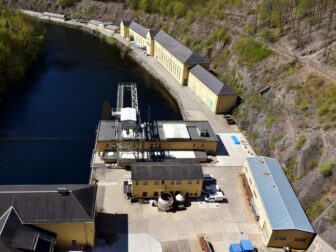Tag - iot water management
Smart Water Stewardship: Harnessing IoT Solutions for Efficient Water Management
Smart Water Stewardship: Harnessing IoT Solutions for Efficient Water Management
Water is the most essential resource for life on Earth, yet it is often managed with outdated systems and technologies. As global water challenges intensify due to population growth, urbanization, and climate change, there is an urgent need to revolutionize water management. Enter the Internet of Things (IoT), which offers transformative potential for managing water resources more efficiently and sustainably.
IoT technologies involve a network of physical devices, such as sensors and meters, that collect and exchange data. In the context of water management, these devices can monitor a variety of parameters including flow rates, pressure, quality, and consumption patterns. When integrated into water infrastructure, IoT enables real-time data collection and analysis, leading to smarter decision-making and operational improvements.
One of the key benefits of IoT in water management is the detection and prevention of leaks. Water distribution systems, especially in older cities, are prone to leakage, which can lead to significant water loss. IoT sensors can detect abnormal flow patterns and alert maintenance teams before a minor leak becomes a major problem. This not only conserves water but also reduces the costs associated with water loss and infrastructure damage.
IoT also plays a crucial role in water conservation efforts. Smart irrigation systems use weather forecasts and soil moisture sensors to precisely control the amount of water used for landscaping and agriculture. This not only saves water but also ensures optimal growth conditions for plants, leading to better yields and lower water bills. In the residential sector, IoT-enabled smart meters help consumers monitor their water usage patterns, encouraging more responsible consumption and helping to identify wasteful habits.
Another area where IoT is making a significant impact is in the treatment and quality monitoring of water. By continuously measuring parameters such as pH, turbidity, and contaminant levels, IoT devices can ensure that water is safe for consumption and meets regulatory standards. Automated controls can adjust treatment processes in real-time to maintain water quality, even under fluctuating conditions.
Furthermore, IoT facilitates remote monitoring and control of water systems, which is particularly beneficial in difficult-to-access or hazardous locations. Data from sensors can be sent to centralized management platforms where it can be analyzed and used to control pumps, valves, and other equipment. This capability enhances the responsiveness of water utilities to changing demands and conditions, and it also reduces the need for on-site inspections, which can be both risky and costly.
The integration of IoT with other advanced technologies, such as artificial intelligence (AI) and machine learning, further enhances water management systems. Predictive analytics can forecast demand and supply trends, optimize resource allocation, and even predict system failures before they occur. This proactive approach minimizes disruptions and ensures a more resilient water supply.
Despite its vast potential, the adoption of IoT in water management is not without challenges. Concerns over data security and privacy, as well as the need for substantial upfront investment in technology, can be barriers to implementation. However, as IoT devices become more affordable and secure, and as the value of water conservation and efficient management becomes increasingly evident, these challenges are likely to diminish.
In conclusion, IoT represents a paradigm shift in how we manage and conserve water. By providing accurate, real-time data and enabling automated control of water systems, IoT technologies pave the way for a future where water is managed wisely and sustainably. As the demand for water grows and the pressures on our water resources intensify, the adoption of IoT in water management is not just an option—it’s an imperative for a thirsty planet.
